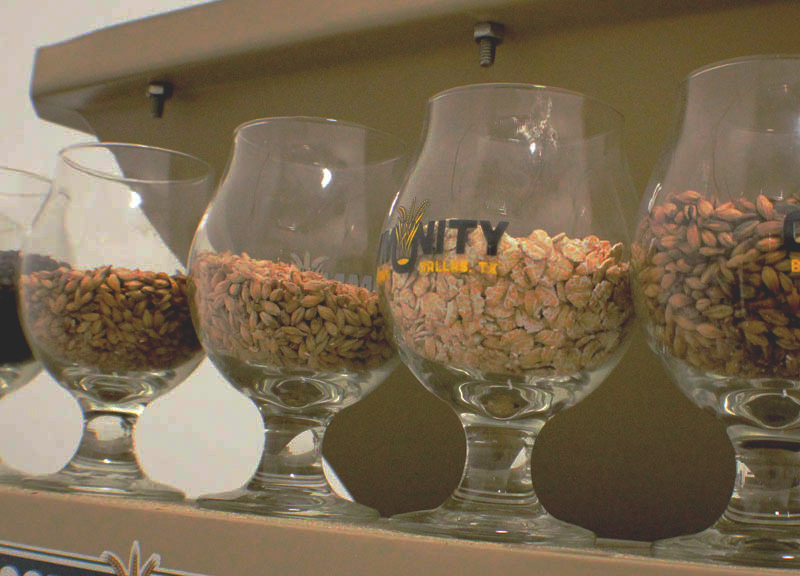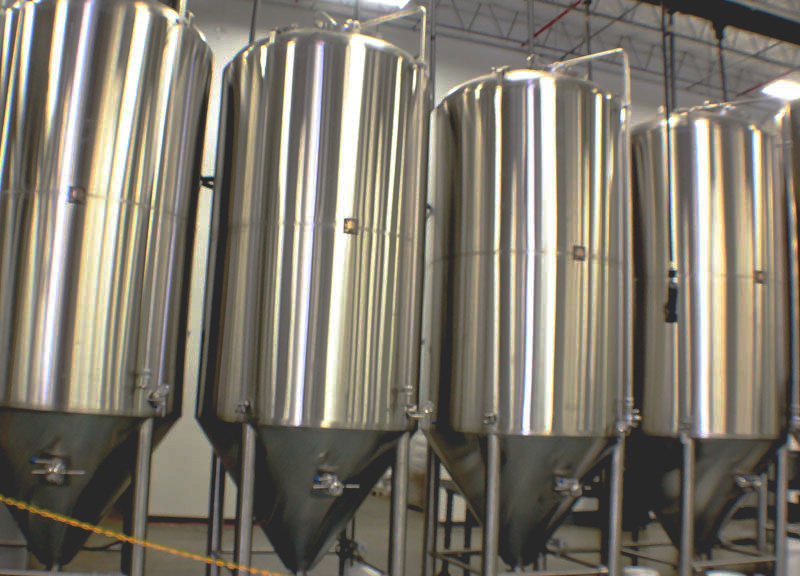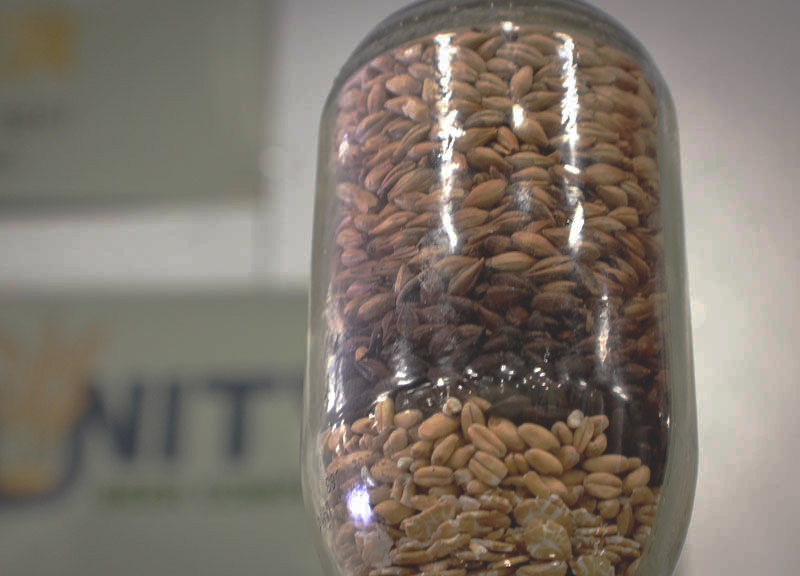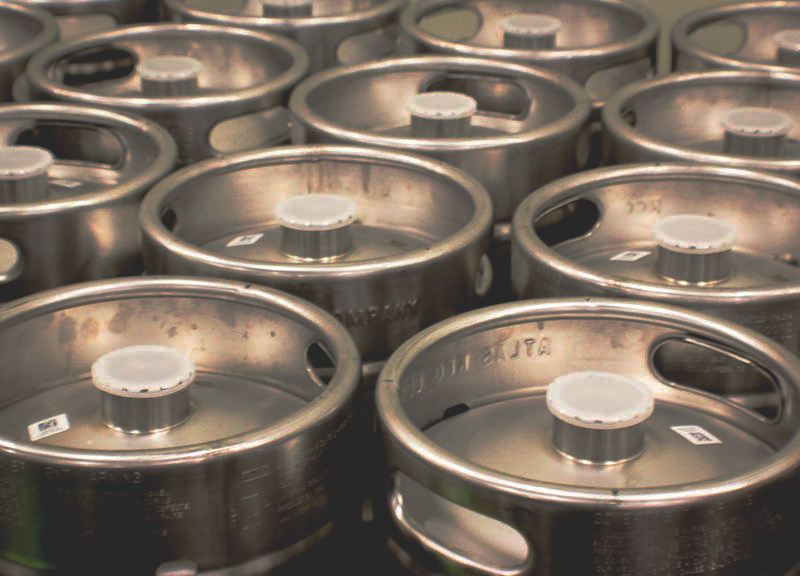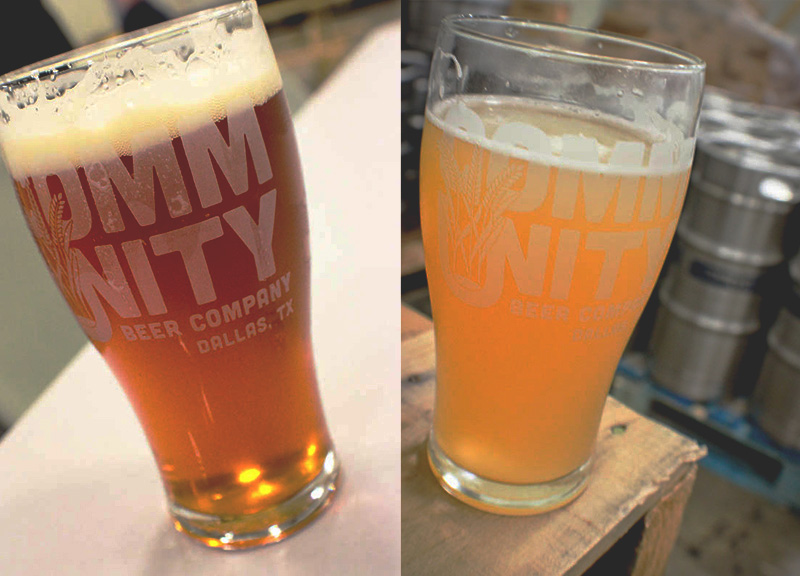With Some New Laws On The Books, The Texas Craft Beer Revolution Is Officially Underway.
It's Friday afternoon, traffic has started to jam and tempers are already on edge.
But an alluring sign calls out to the sea of commuters backed up on I-35E like a beacon of hope. Once just an indicator that, yes, beer is made nearby, Community Beer Company's logo now contains an added message for its car-stricken passersby: Follow the sign and you can drink that beer, too.
Previously, a thirsty beer lover would have to either wait for a local brewery to open its doors for a tour or track down a local restaurant or pub in order to indulge in their delicious brews.
Not any more, though. On this warm Friday, not only is the brewery open, but its beers are being sold by the pint to its very eager crowd.
“I called it a taproom, just for lack of a better word, because it implies by-the-glass ordering,” says Kevin Carr founder and owner of Community Beer Company, who set up the impromptu space within his brewery just for this day. Already, though, construction has started next door for a more permanent location of the brewery's official taproom, which is set to open sometime in late August. “We're dipping our toe into the water, just dialing it in a little bit.”
Previously, Texas law stated that breweries were not allowed to sell beers by the pint to consumers directly — among a bevy of other restrictions. But with the passing of a series of craft beer legislations in Austin just last month, Texas has officially jumped on board with the craft beer revolution.
It's a welcome change. Craft brewers have been trying for expanded rights and abilities session after session to no avail. But this time around was different, fortunately for beer lovers statewide.
“This session, the political climate was ripe for change due in part by the efforts of the Senate interim workgroups composed of industry stake holders,” says Chuck Mains, legislative assistant to state senator Kevin P. Eltife, whose encouragement helped set these bills on the fast track to becoming laws. “Those workgroups allowed everybody to work together and hear all sides.”
The changes had been a long time coming. Texas hadn't previously seen any alteration in the craft beer laws since 1993, when the first beer laws that legally recognized brewpubs and craft brewers' rights across the state were approved. Meanwhile, these new laws Texas Craft Brewers Guildallow breweries to sell their products directly to consumers on premise, increase annual brewpub product levels while allowing brewpubs to sell products wholesale and attempt to protect smaller brewer's existing rights to self-distribute.
Economically, it makes sense.
“Craft brews are an incredibly important part of the market that is experiencing double digit growth,” says Keith Strama, general counsel for the Wholesale Distributors of Texas.
Still, these laws are not without faults. Provisions within these laws would prevent brewers from selling their distribution rights to distributors.
“I'm not a personal fan of it as it doesn't do much for my brewery or my business model,” says Michael Peticolas, owner of Peticolas Brewing Company, a family-owned and -operated brewery in Dallas. “The downside for me is the provision that doesn't not allow the brewer to sell distributions. For me, it's a tougher pill to swallow because I practiced law for the past decade and made a career out of protecting peoples rights. For the legislature to take away the rights that we previously enjoyed is hard to take.”
Peticolas' sentiment is one with which several local brewers, including those are Community Beer Company, agree.
“Previously, what you could do is you could sell those rights say to Houston or Austin — and this money was never used for brewery owners to get rich and buy a lake house,” says Community's Carr. “It's almost always used to put money back into the brewery — to buy more tanks, support the new growth of demand that the distributor would bring. The interest that represented the distributors was more successful in taking that right away, and it's made a lot of us pretty unhappy.”
Craft brewers participate in what is called a three-tier system — manufacturing, distributing and retail. Texas government attempts to prevent beer monopolies from forming by keeping these segments of the market separated and with very heavy restrictions. Still, the rules in place have Peticolas Brewing Company questioning the law and seeking alterations to said laws.
“What I would specifically want changed is the ability to sell off premise,” says Peticolas. “To give us equal footing as a Texas winery able to sell our beer directly to someone who wants to take it with them, that would be the big win.”
While Texas wineries are indeed able to sell directly to the consumer, this right didn't come easily for that market, either. Texas wine laws were the result of years of negotiations and tweaks — and, even then, it's a system that still has a multitude of “Part of why it takes so long is that Texas legislation meets only once every two years, so any progress is going to take at least twice as long,” says Aric Hulsey, brewer and microbiologist with Community Beer Company. “And I think, in general, they are just more resistant to change. But this [recently passed piece of legislation] was such an obvious pro-business, pro-people bill that it was kind of a no-brainer. When it finally did pass, I heard some people in the legislative say 'Why isn't this already allowed?'”
Let's make no mistake, though: These bills have set a precedent for the coming years in the craft beer revolution. And, with each passing year, Texas legislation will have little choice but to listen to the concerns of this budding industry.
“It is a positive step,” says Frederick William “Frtiz” Rahr Jr. of Rahr & Sons Brewing Company in Fort Worth.. “It brings us in line with other breweries across the country. It equaled the playing field to compete with out-of-state breweries.”
The new laws also mean massive tax and tourism revenue for the state, as well as a multitude of job opportunities for Texas and its citizens — a progressive victory in the minds of many.
And back at Community Beer Company's headquarters, as he keeps a watchful, pleased eye on the growing crowd drinking in his makeshift taproom this past Friday, that victory is plenty enough for Carr. For now, at least.
“All in all, I think this is good for us and other breweries, and good for consumers ultimately,” Carr says. “It's about consumer access. Access to fresh product, from tank to glass — you can't get beer any fresher.”
issues of its own. Will craft breweries ever enjoy the same rights as Texas wineries? Local craft brewers certainly hope so, even if it means waiting patiently for that day to come.
